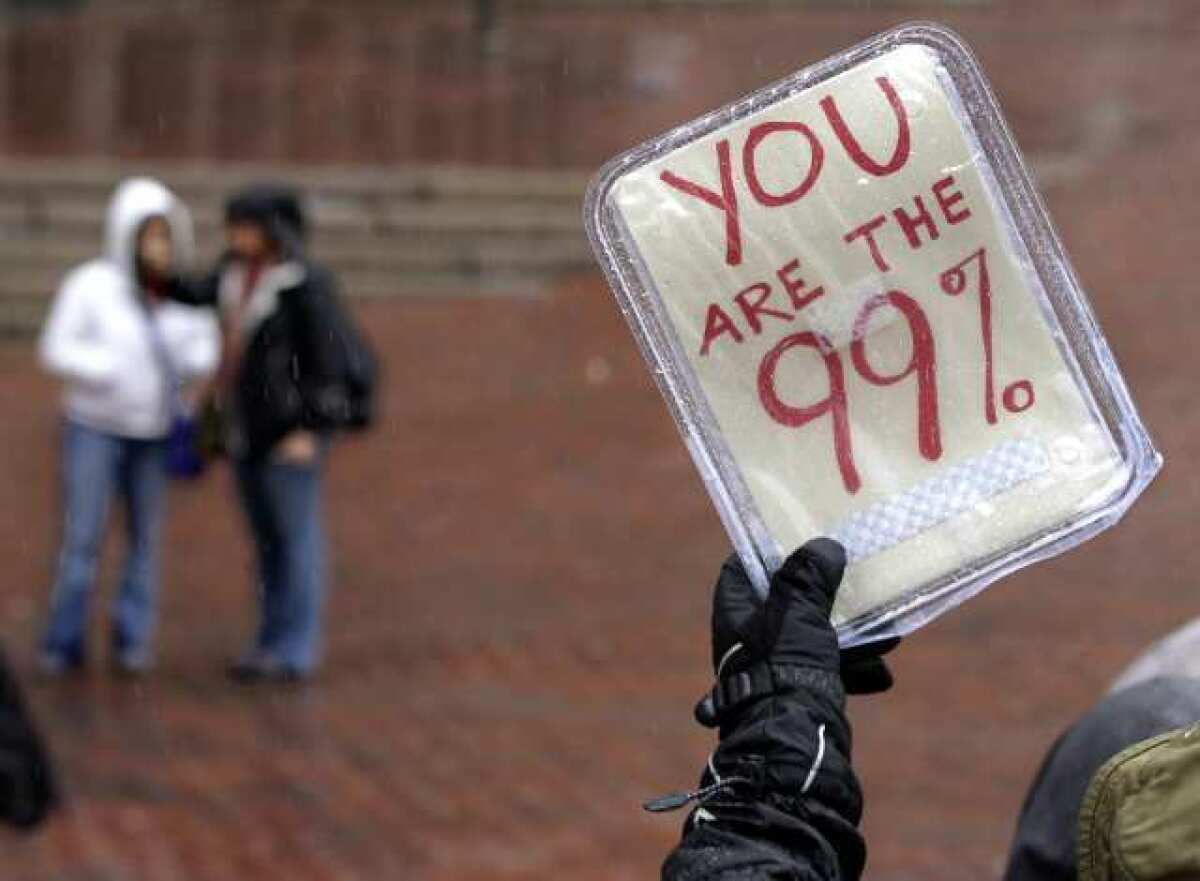Kinsley: Overvaluing the free market

The people at the New York Times Magazine must think that nobody has ever read Ayn Rand, or maybe even Adam Smith. Their cover story on Sunday â misleadingly titled, âAre the Rich Worth a Damn?â â reports breathlessly that there is this fellow named Edward Conard who not only believes in free-market capitalism but is willing to say publicly that what America needs is more inequality, not less. (Heâs even written a book.)
The argument is basically Smithâs, carried to extremes: The invisible hand of free-market capitalism turns individual greed into prosperity for all. But Conard also shares Ayn Randâs conviction that the successful businessman is a hero, the alpha male at his finest, while the rest of us are deadbeats and leeches. He says that Warren Buffett should âstop taking a victory lapâ for saying that the rich should pay more taxes. In Conardâs view, believe it or not, the middle class is better off paying more taxes so that people like Buffet can pay less and use their superior drive and brains to finance innovation that makes everybody richer.
Letâs accept the thesis that an individual is entitled to get rich if he or she makes a significant contribution to society. This still leaves you a long way from Conardâs belief that incomes should be more unequal, not less. There is a necessary distinction between riches gained through truly productive, socially beneficial activity, and riches from activities that just enrich the actor. Planet Moneyâs Adam Davidson, the Times magazine articleâs author, concedes that many large fortunes are nothing more than what economists call âmonopoly rents,â such as the value of broadcast licenses given away free by the government or ownership of land in places where rising population makes it more valuable.
Conard clearly believes that he himself is in the alpha elite that should get more money, not less. He was a partner of Mitt Romney at Bain Capital until he retired a few years ago at age 51. This makes him a pretty dramatic counter-example to his theory. His own huge accumulation of wealth did not cause him to buckle down and work even harder to make money. It caused him to retire.
Has it occurred to Conard that he may not be the only one who prefers cultural or literary pursuits more satisfying, or at least more relaxing, than private equity? Conard dropped out of the rat race after he had more money than he could ever reasonably need. (Davidson estimates that Conardâs net worth is âmost likely in the hundreds of millions.â) What makes him think others wonât do the same?
The theory behind free-market capitalism is undeniably true and undeniably powerful in explaining the world around us. But it explains less and less as we move up the income scale.
Why do people try to maximize their incomes? The poor person wants more money in order to eat. The middle-class person wants a better house or a new washing machine. Even a rich person may want an even better house or a servant to wash the clothes. But what more does a really, really rich person â worth, say, âmost likely in the hundreds of millionsâ â want that money can buy? What motivates him or her to go to work every morning, trying to accumulate even more? Itâs not hard to come up with a few obvious psychological factors (competition, egocentrism, lack of imagination), but greed as classically understood is not one of them. The more someone has benefited from free-market economics, the less the theory behind free-market economics applies.
Even if a gazillionaire is clearly a net contributor to society and not a leech, this doesnât necessarily justify his or her fortune. After Facebook goes public later this month, Mark Zuckerberg could be worth more than $17 billion. Even if Facebook contributes more than
$17.5 billion to the good of society, it doesnât follow that every dollar of Zuckerbergâs $17 billion is a bargain for society, or that we should want Zuckerberg to have more money, not less, as Conard maintains. If Zuckerberg had never been born, would no one else have come up with the idea of Facebook? Would Zuckerberg not have created Facebook if he only expected to make, say, $12 billion? Or even $12 million?
There is no evidence that remuneration at the very top of society is calculated to extract the maximum amount of entrepreneurial energy and talent at the minimum price. In fact, quite the reverse: Thereâs every reason to think we overpay. Letâs even imagine that all the paper-shuffling and exotic transactions that go on in American finance are productive somehow. Does it follow that we need to pay Jamie Dimon, chairman and CEO of JPMorgan, $23 million in a bad year (2011) to do whatever it is that he does? Perhaps he is uniquely talented. But even so, he might settle for $10 million if pushed to the wall. Or perhaps someone just as good, or almost as good, would do the job for a lower price? This doesnât mean that Dimon should be fired and replaced. But it does mean that he doesnât need to be paid more, or even as much.
Conardâs argument justifying inequality is just a fleshed-out version of his former colleague Romneyâs stump speech about how he can save the country as a businessman. But Romney probably would have preferred Conard to hold his fire until after November
I, on the other hand, believe this is too important to wait, and that Romney himself should take up the case for more income inequality, which would be the result of his announced economic policies in any event. But I suppose thatâs too much to hope for.
Michael Kinsley, a former editorial page editor of The Times, is a Bloomberg View columnist.
More to Read
A cure for the common opinion
Get thought-provoking perspectives with our weekly newsletter.
You may occasionally receive promotional content from the Los Angeles Times.










